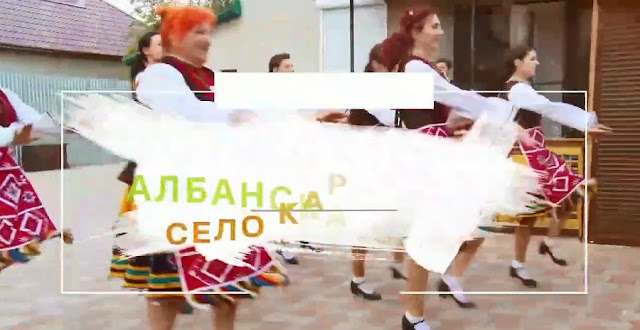 |
| Traditional Albanian dance in Ukraine |
"In the village of Karakurt, you can not only eat delicious food but also dance traditional Albanian dance. Karakurt is the Albanian capital of Ukraine. Many Albanians have lived in this country for two hundred years, who left the Ottoman Empire and in Karakurt learned to live in peace and friendship with each other.
International weddings in this area have already become commonplace and today the villagers speak at least three different languages.
"Albanians in Karakurt speak the language of their ancestors and use it in their families, mixing it with Russian and Bulgarian."
The Karakurt colony was established in 1811 near Lake Yalpuh. The founders of Karakurt were Albanians, Bulgarians and Gagauz.
At first the plan of the village consisted of the Albanian neighborhood (which was bigger and better from the micro-geographical point of view), the Bulgarian neighborhood (which was located in the center and at the edge of the village) and the Gagauz neighborhood (which was located behind river and was considered the poorest and neighborhood).
Over time the territory of the village changed. Yet the features of planning back then have been preserved to this day. Even all the villagers remember where Albanians, Bulgarians, and Gagauz lived in the first decades after the founding of the village.
According to archival evidence, several thousand Bulgarians, Albanians and Gagauz have moved to the district of Bollgrad (the main city in the area).
Among them approximately three thousand were Albanians.
The figures could not be considered accurate because at that time officials fixed very carefully the religion of the colonists and not their ethnicity. At the beginning of the 19th century, domestic politics in almost every European country aimed at the religious and state consolidation of the population, and very rarely it interfered in the essence of ethnic features.
For the people of the transitional era, local, ie regional, consciousness was more important.
Ethnicities and ethnic groups were forced to live in conditions of narrow borders of European countries in which memories of medieval times and the consequences of this era were very strong.
